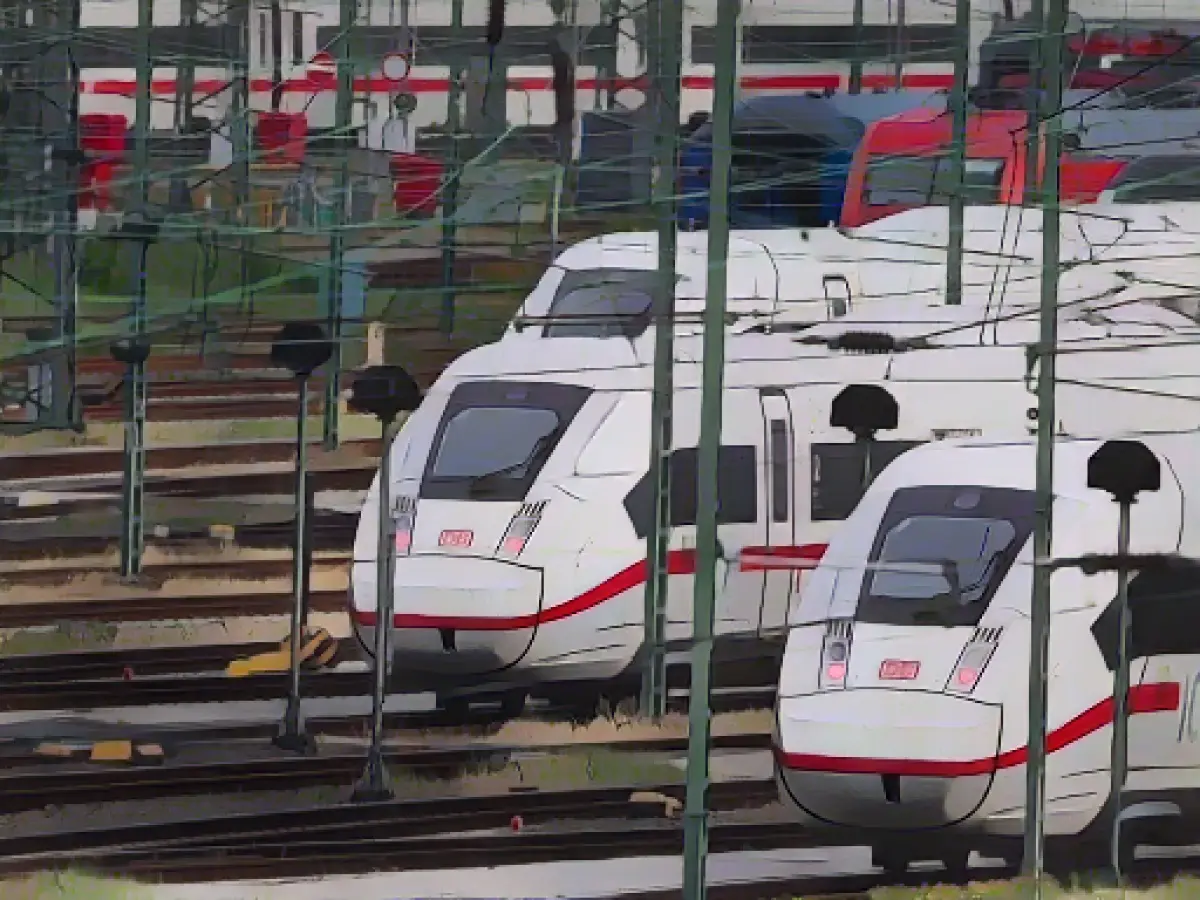GDL Announces Strike in Wage Dispute with Deutsche Bahn
In a significant blow to Germany's transportation sector, the German train drivers' union, GDL, has decided to take industrial action in their wage dispute with Deutsche Bahn. The union's responsible committees confirmed the news to the Deutsche Presse-Agentur on Tuesday, without providing further details on the nature of this action.
Such a strike could result in significant disruptions to rail traffic, impacting both commuters and long-distance travelers alike. Analysts suggest that the tariffs on goods transported by rail could also be affected if the strike prolongs.
Potential Consequences of GDL's Strike
Disruptions for Commuters and Long-Distance Travelers
If negotiations between GDL and Deutsche Bahn fail, the likelihood of strikes increases. These strikes could disrupt various rail services, including regional, long-distance, and freight traffic throughout Germany. The last major wage dispute between GDL and its train drivers' union in 2023 resulted in nationwide strikes lasting several days, causing substantial disruptions.
Alternative Transportation Options
In the event of strikes, commuters might need to adapt their schedules and rely on alternative transportation methods. Overcrowding in buses and trams is a potential outcome, as observed in Berlin, where public transport disruptions have led to increased usage of these modes of transportation. Additionally, road traffic in these areas has significantly increased due to suspended U-Bahn and Straßenbahn services.
Economic Impacts
Prolonged disruptions could affect regional economies, particularly those near transport hubs. Decreased foot traffic in these areas highlights the connection between transportation accessibility and economic activity.
Potential Effects on Rail Tariffs
Disruptions to rail travel could lead to changes in rail tariffs. Airlines might offer deals to attract passengers seeking alternative routes, such as flights to cities like Berlin.
Further Developments in the Wage Negotiations
The EVG union is demanding a 7.6% pay raise, whereas Deutsche Bahn's initial offer is up to 6.6%. The union also seeks job security guarantees through 2027 and additional benefits for shift workers. The proposed 37-month contract term by Deutsche Bahn is a contentious issue, with the EVG advocating for a shorter duration to enable earlier renegotiations based on economic conditions.
Political uncertainty also looms over these negotiations, as Germany prepares for a federal election on February 23, 2025. A new government could potentially impact the negotiations and shape the future of the rail sector in Germany.
In conclusion, the ongoing wage negotiations between Deutsche Bahn and EVG union could result in significant disruptions to commuters, long-distance travelers, and the economy. The outcome of these negotiations will be crucial in determining the stability and reliability of Germany's rail services in the future.








